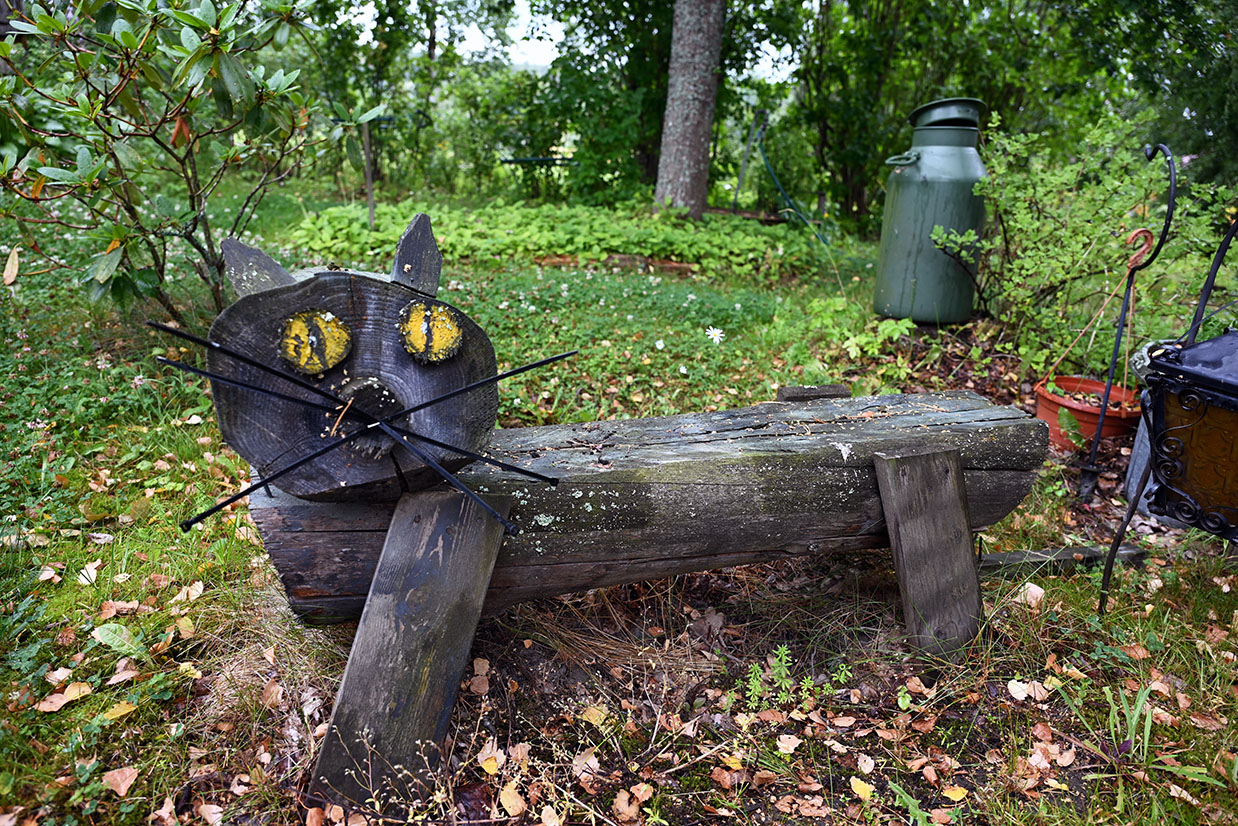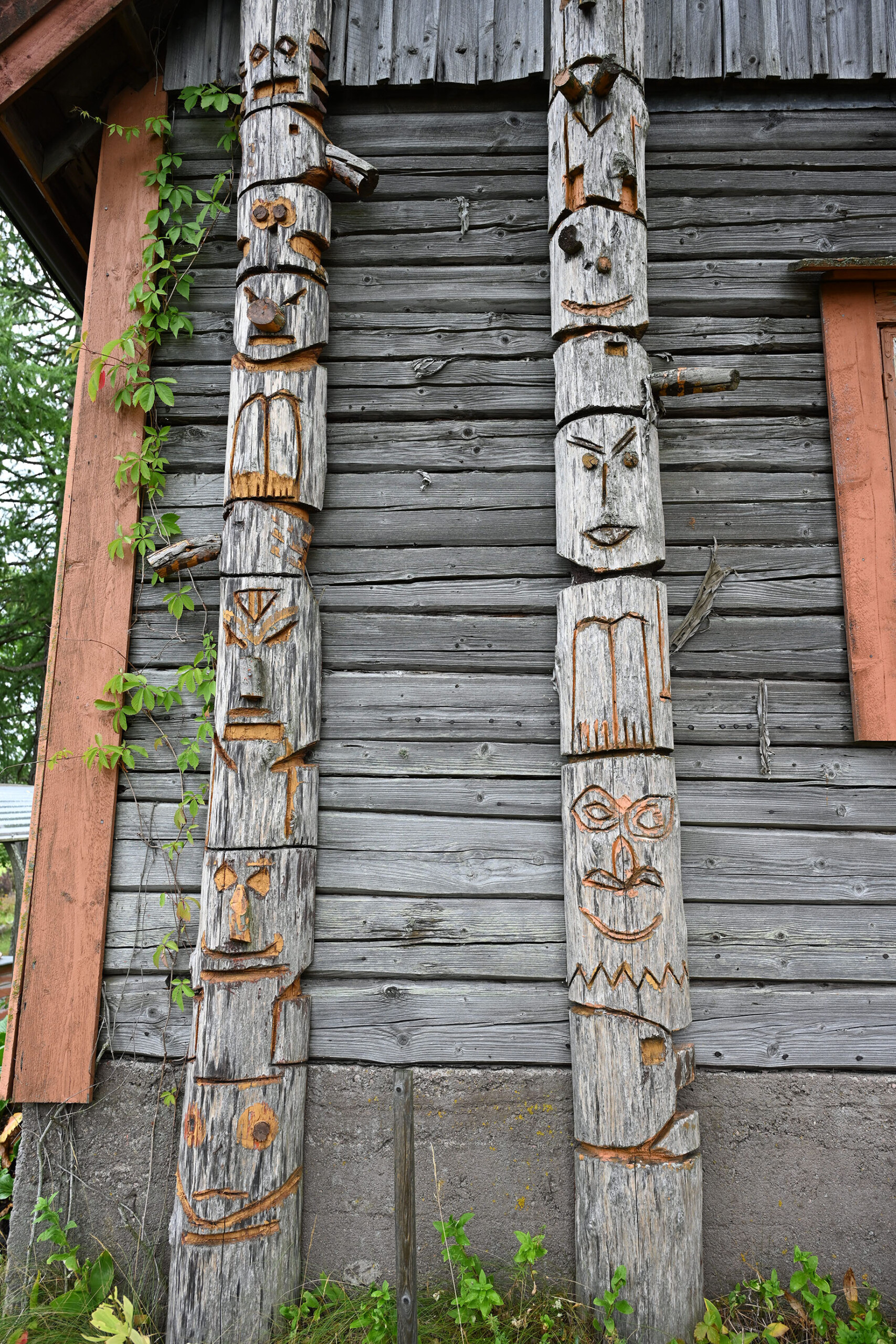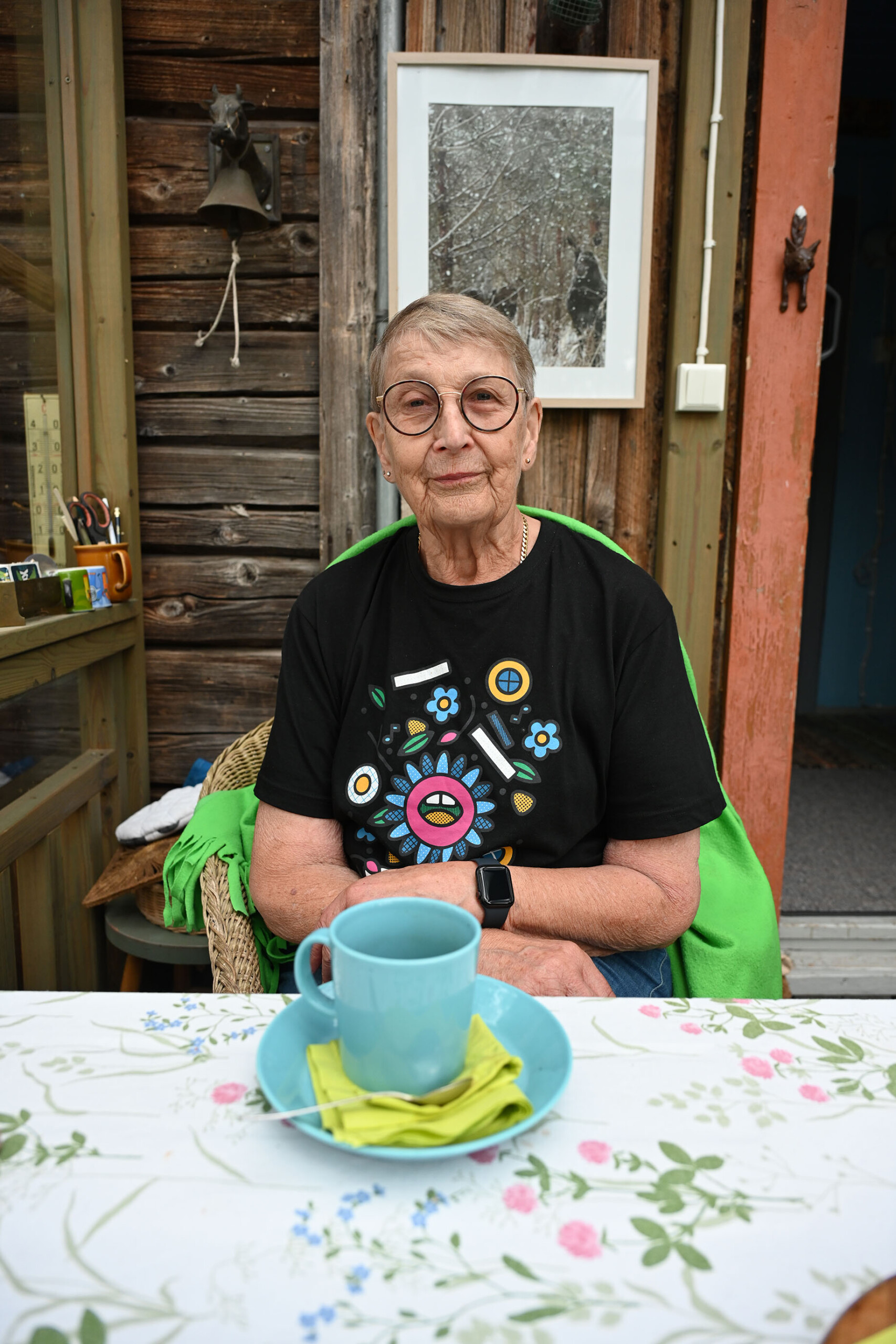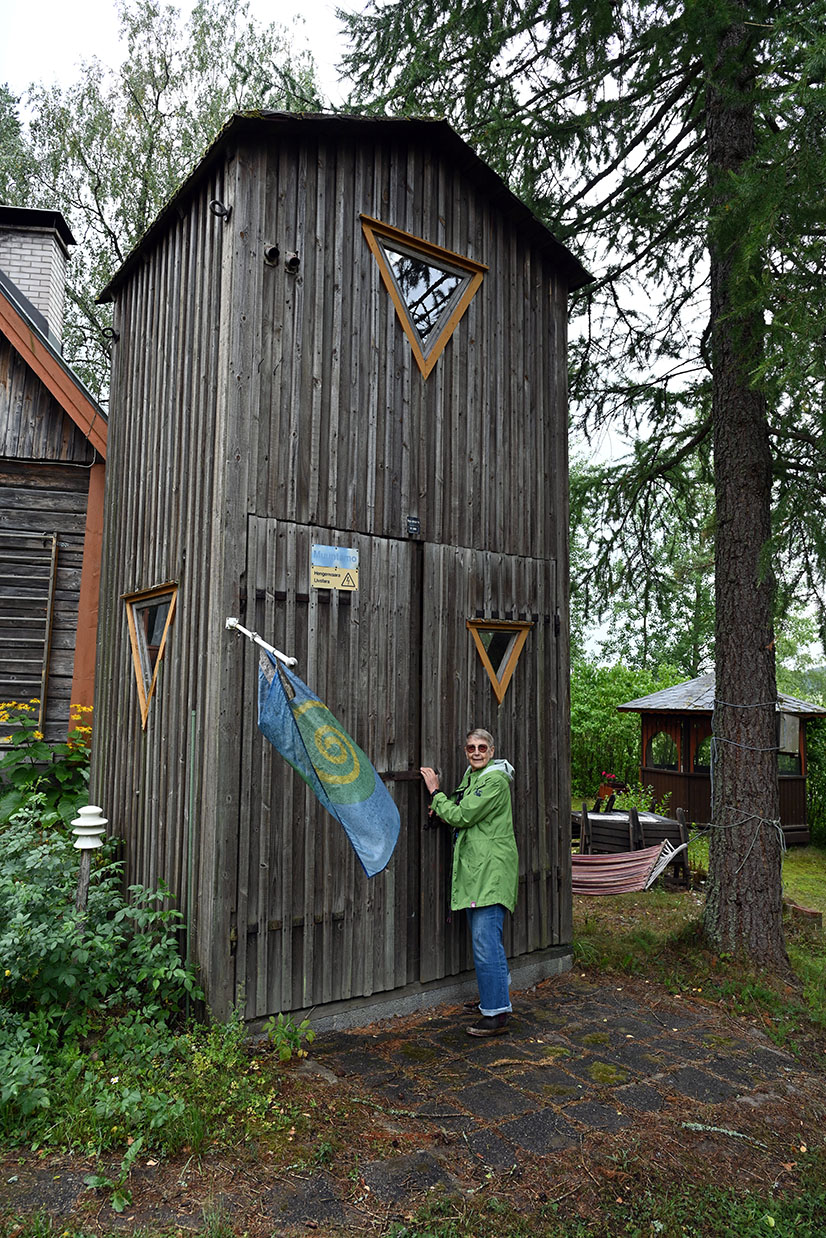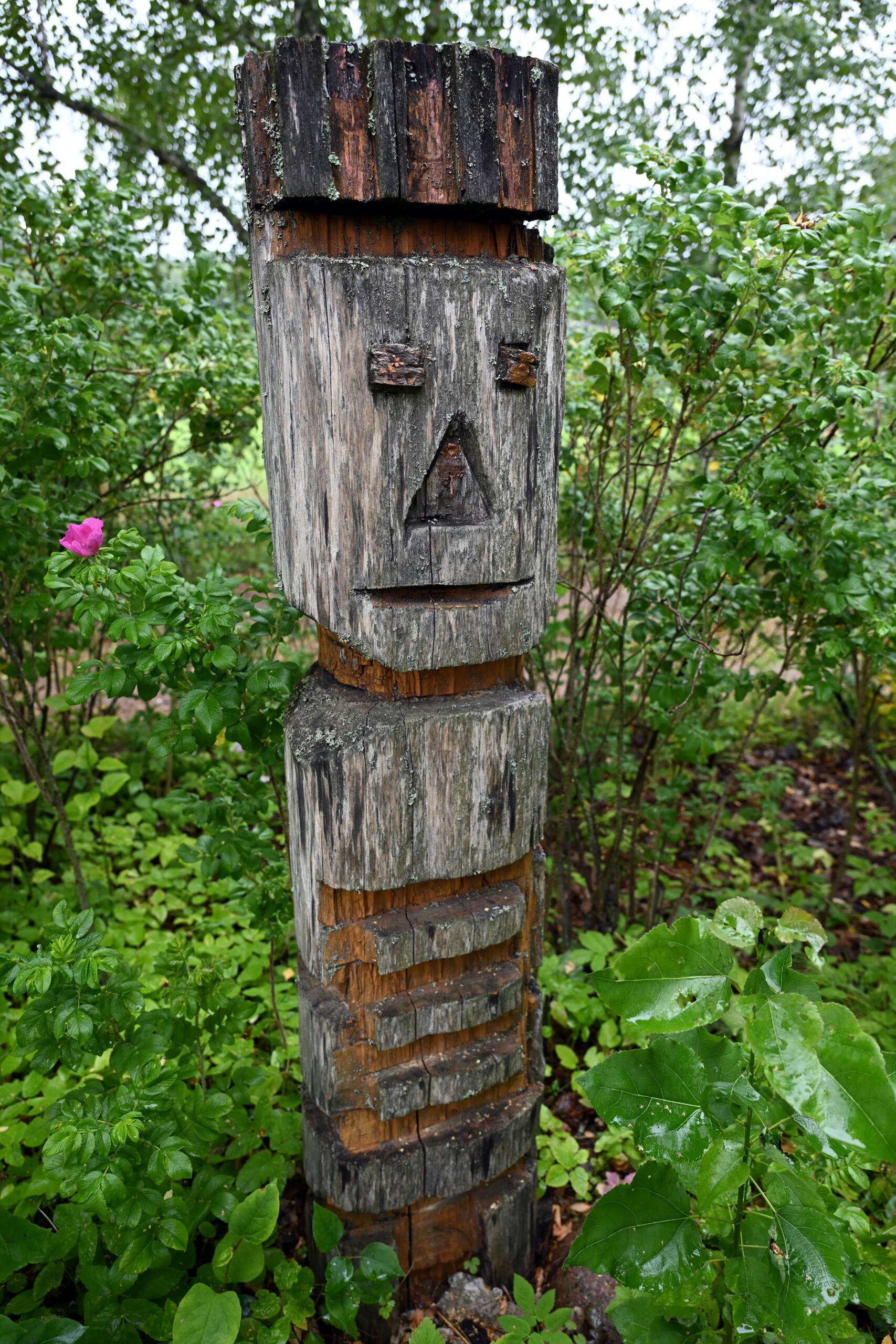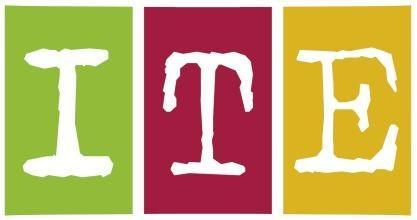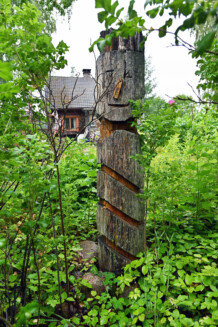
Pirkko Lahti
Lohja (1941)
A quaint little grey cottage in Lohja – or perhaps in Arabia beyond the Mediterranean Sea – is located in the lush countryside, by a winding river inhabited by a family of swans. It is the embodiment of the personality and life wisdom of the psychologist Pirkko Lahti; a storehouse of souvenirs, unique outbuildings, observatories, totems and wooden sculptures, a place where memories reside and which is visited by numerous guests every summer.
Pirkko Lahti was born in Kisko in 1941. She never got to see her father, who was killed by a shower of bullets when he was climbing a fence during the Continuation War. Lahti’s mother was left to raise the children by herself, and was, by necessity, a very hard-working woman who would undertake any job, be it construction work or kitchen chores.
Lahti, toughened by the harsh post-war era, has warm memories of the village community and its children working towards shared targets. Lahti was a talented and athletic child and was able to progress to middle school and university, and became a well-known expert and speaker. She also held a significant position in Finnish society as a trauma psychologist and long-term Executive Director of the Finnish Association for Mental Health.
Lahti and her cosy cottage are both filled with energy, humour, wit and warmth. Art as a playfield of creativity plays an important role in mental health, and this can be seen in the cottage environment. The garden is full of sculptures made by Lahti and her friends.
Large fibreglass cows stand on the edge of the plot, the vegetarian pink concrete piglet, Allihopa, welcomes all visitors, and playful log cats and horses act as flower beds. A wooden bear poses on a cliff, totems with friends’ faces and poles resembling indigenous peoples’ memorial poles reach for the sky.
A wooden choir belts out a song beside the stage on the edge of a meadow and the stand on the terraced lawn, and the old distribution substation has been turned into an observatory with a gym downstairs and a window upstairs for viewing the night sky. The garden has been a venue for huge parties and concerts.
The way Lahti talks and thinks and the names she has given to the buildings are testament to the suppleness of her language and mind, worldly wisdom and playfulness. There is a round gazebo in the garden, and an Alzheimer’s room in the cottage, decorated with nostalgic and soothing 1950s objects.
Lahti has built a wooden house on top of the heat pump for protection; its front door is connected to another house, the front door of which is connected to yet another house.
Many sculptures have a polemical trait. A wooden sculpture titled Androgyyni (‘Androgynous’) stands beside the road, one side of which is a woman, the other a man. Like her mother, Lahti is not averse to the idea of building or using a chainsaw and has carved sculptures and built outbuildings on the plot. “There is male and female in each of us. It’s about your how you see this,” says Lahti. She lives in Helsinki and plans to spend time at the cottage until she is 85, and then she’ll have another cottage in Vallila.
Lahti’s cottage in Lohja is an infectiously joyful creation, filled with positive energy, scorched by the summer heat and freshened by the winter frost. Pirkko Lahti herself radiates the strength of a bedrock, the tenacity of a pine tree, the gentleness of a summer breeze, playfulness, wit and warm hospitality – good old-time energy that will hopefully never disappear, good vibes that seem to grow when shared and that make everyone around feel great.
Text: Heini Heikkilä. Images: Heini Heikkilä.
